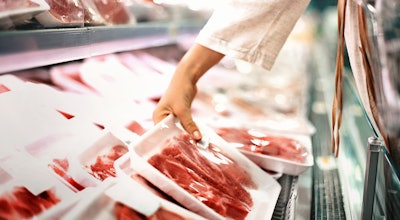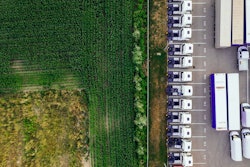
In the midst of the current Coronavirus disease (COVID-19) pandemic, many food and beverage manufacturers and suppliers are developing and implementing risk management policies and procedures. While we learn more about the pandemic and circumstances rapidly changing around the globe, it is becoming increasingly clear that risk management is a matter of social responsibility and no longer linked solely to checking business productivity or regulatory boxes.
As we face this global crisis and food manufacturers attempt to continue to produce food, we are undeniably operating in a “New Normal,” but one in which everyone still needs to eat. Production must continue with or without an existing risk plan to keep the business operating. Once recovery begins, to make sure they are prepared for the next global disruption, food and beverage manufacturers and suppliers should assess their risk management structure from top to bottom and implement all necessary changes as soon as possible.
Risk management plans will go from optional to mandatory for food and beverage manufacturers and suppliers who want to compete. Risk management and evaluation need to become deeply rooted in a company’s culture. Companies should document and communicate risk management processes to every facet of the organization and where possible, digitally integrate those processes into all systems.
Prioritizing risk management needs to start with the C-suite. CEOs need to embrace transparency and openness and challenge their business regularly to review, assess and update risk management plans as conditions necessitate. There can no longer be a gap between the C-suite’s understanding of risk management policies and what the business is actually implementing.
Executives across food and beverage companies need to take a new look at risk as a matter of social responsibility. Practices are in place to follow global and local ordinances such as the Food Safety Modernization Act (FSMA). Today’s consumers are significant drivers of these regulations, and their buying habits put pressure on manufacturers to operate in ethical and sustainable ways, especially when it comes to food. In an age of increased disruption, it's no longer just about corporate profits, but the public health as well. Disruption is not going away; it’s increasing.
If workers can get to the production facilities and a distribution system remains in place, a business can go on. However, to stay in business, risk management needs to be in place now more than ever.
Here are three ways to help with risk management planning in the New Normal:
- Prioritize risk
In taking both a short and long term view of risk management, the best approach is inclusive and prioritized. Critical planning scenarios such as packaging, information technology systems, inventory and container loss, logistics and labor issues that result from natural disasters, pandemics and other unplanned events should be top of mind for food and beverage business executives. Supply chain procedures should be in place, starting with an assessment of how individual risks could impact your customers’ customer (the consumer) back upstream through the supplier network. Government agencies typically rehearse emergency management practices in the event of a disaster. Food and beverage manufacturers should routinely run drills on their risk management plans to ensure the right priorities are in place and that when an issue occurs, the programs can be activated.
2. Update information technology systems and Infrastructure
Many food and beverage companies rely on outdated technologies throughout their supply chain. Some are, however, starting to embrace digital transformation in their overall business processes. As part of a comprehensive risk management plan, employees must be able to remain connected while working remotely via technologies that are accessible via the cloud. In addition to providing essential platform functions, such as data entry and reporting, adaptive cloud-based enterprise resource planning (ERP) can support the direction of the company by responding quickly to disruptions and providing managers with data they can use to determine a course of action. These risk management policies must be up-to-date and integrated with day-to-day practices and systems including ERP, demand and supply chain planning, transportation, quality, production planning, asset management and procurement systems.
3. Develop contingency planning
Backup and contingency planning are essential to ensure continuity in the event of any departure from business as usual. A robust contingency plan outlines the steps required to return to normal business operations, including a process to restore lost production and data. The strength of an organization’s contingency plan also relies on the organization’s ability to communicate critical instructions to its supply chain partners to ensure they know their role in the successful execution of recovery plans.
The food and beverage industry, especially manufacturers, are heading into uncharted territory. Today, it’s easy to assume that given all the new advancements in technology over the last half-century, we might be immune to most disruptions. That is unfortunately not true.
More disruptions in recent years have impacted the industry’s ability to deliver safe and quality food to an increasingly global population with more specific dietary preferences and needs. That’s why manufacturers need a reliable, cohesive risk management process in place throughout the entire enterprise to manage these disruptions, and in some cases, help turn them into a competitive advantage. Businesses that choose to be producers of food have an obligation to more than just their shareholders. Choosing this business commits them to providing safe food that is readily available to consumers. Companies without a well-defined, rehearsed and comprehensive plan will struggle to identify and resolve issues that could potentially disrupt their business. Customer service, manufacturing, distribution, financial and sales processes can all be compromised. Advanced adaptive business systems that are integrated to a company’s operational and risk processes will help food and beverage manufacturers run their businesses during a crisis. These systems can help food and beverage manufacturers stay in business, which is a critical consideration, but more importantly, they can help these companies continue to provide consumer goods and foods to society.




















